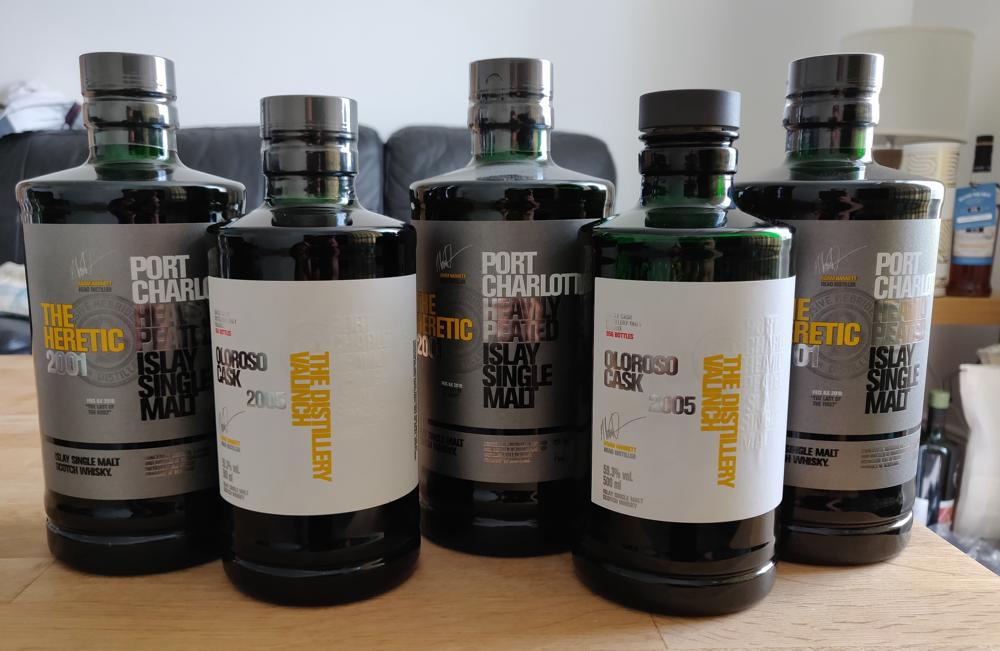Storing whisky bottles
Published April 17, 2022
Contents

For those in a hurry, here are the tips in a nutshell:
- Whisky should always be stored upright
- Whisky should always be stored in the dark
- Whisky can be stored well at room temperature
- Low humidity is important
If you plan to store your whisky for longer than 6 months then lower temperatures are advisable, and it is important to turn your bottles to wet the cork. This will prevent it from drying out and causing oxidisation.
Storing bottles upright
Good whisky, like wine, generally uses natural corks. In contrast to wine, which is best stored lying down, whisky should always be stored upright. This is because the far stronger alcoholic content will interact with the cork in a way that would not be true with wine. In the case of a horizontally stored whisky, beyond the mere taste impact, this would eventually lead to leaking. Therefore, a good whisky should always be stored upright.
Over longer time periods (6 months+) natural cork will dry and contract and no longer form a tight seal. For this reason the bottle should be turned to wet the cork periodically. These rules don’t apply when you’re bottle uses a screwcap, glass or plastic corks.
Store whisky in the dark
Whisky should always be stored in the dark, the box in which the whisky was delivered is generally suitable for this. Failing that the bottle should be stored in a cupboard or somewhere it wont be exposed to direct light.
Strong light degrades whisky in a bottle, in particular ultraviolet light from the sun which reacts with organic compounds in the whisky resulting in unpleasant aromas and flavours. This effect will generally be lessened by coloured glass but not totally prevented. Some drinkers believe that prolonged light exposure can fade the colour of brown spirits and result in off flavours like plastic or rubber. If the bottle is exposed to light, the label will also fade over time, which of course is not important for the taste, but is only of an aesthetic nature.
Storage temperature matters
The temperature is also important for whisky storage, but it is important to ensure that the whisky is stored in a place where there are no large temperature fluctuations. While it will take extreme fluctuations to dramatically change the whisky wide fluctuations can cause chemical changes altering the taste of a closed bottle over time.
Store whisky in low humidity
High humidity is not good for whisky! The natural cork in the bottle may grow mold or change shape over time so that the bottle is no longer tightly closed. In addition, excessive humidity damages the appearance of the label and box, which does not affect the taste, but is still a pity.
Storing open whisky
The above storage tips relate to closed whisky, as oxidisation is not an important consideration. Once your bottles are open there are additional factors to take into account. You can find more details in our article on whisky & oxidation.
Next

